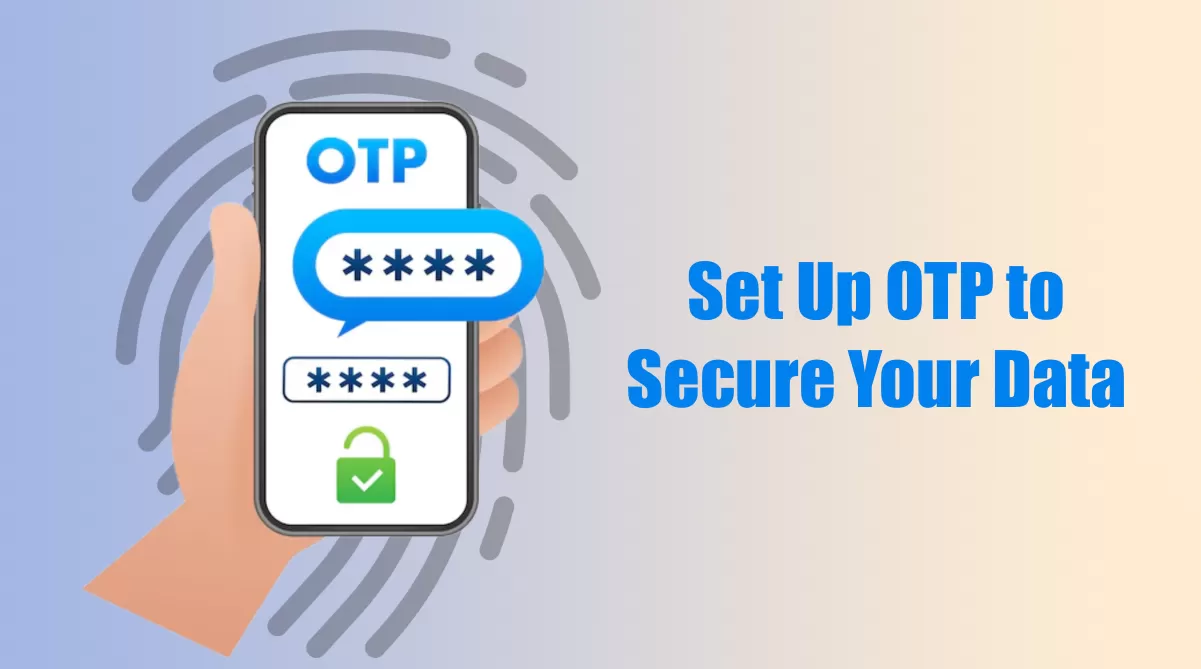We have often heard the saying, “Communication is the key”. It is true. Communication makes the relationship between you and your customer better. But what if that communication is making your business vulnerable? Are you sure that your communication is safe and secure from the hands of attackers?
SMS spoofing makes businesses vulnerable to cyber threats. This vulnerability can impact businesses negatively: it can affect brand reputation, lead to financial trust, and make customers lose their trust. It is. It is important to understand and combat SMS spoofing so that businesses can communicate with their customers effectively.
What is SMS Spoofing?
We are stepping into the digital world more and using digital tools to enhance our businesses. We are also stepping into advanced deception and attack systems. SMS spoofing is where attackers send misleading texts to customers that seem like they were sent from a trusted brand. Behind SMS spoofing, there can be an individual or an entire team of people looking to steal people’s data. To do this, attackers alter the sender ID.
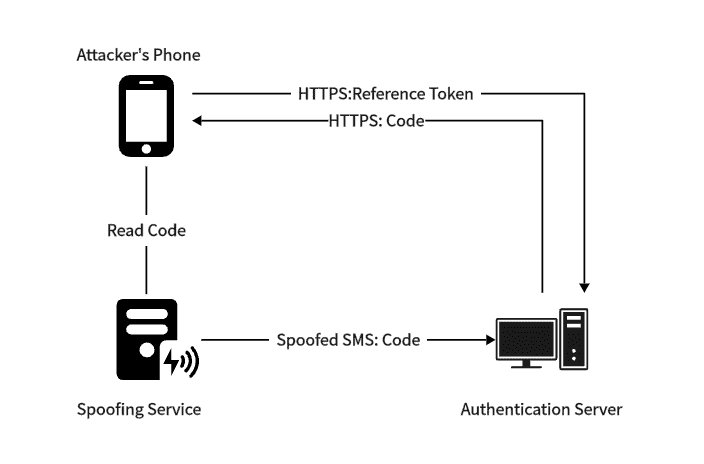
How Does SMS Spoofing Work?
Attackers use various methods to mislead receivers. Methods used can be:
1SMS Aggregator
SMS gateways are those that provide services to customers to send messages from web applications to mobile phones. Attackers can use these aggregators to their advantage by manipulating the sender's information. By using a false sender ID, they can deceive customers into thinking that it is from an authentic source.
2SIM Card Cloning
In this method, attackers clone the authentic SIM card. Then they intercept and send the messages from the cloned SIM card. This method shows the sender ID of the brand, where it was actually from a false source.
3Phishing
Phishing is where spoof SMS is combined with false link. On SMS spam, it looks like a valid link, but in reality, it can steal customer data. When a customer clicks on the link, it can send their personal information, such as login credentials, to the attacker.
Impact of SMS Spoofing on Businesses
The impact of SMS spoofing on businesses can be highly negative. They can damage the business and the trust of customers. When customers receive a fraud message, they think it is from the brand. And when this happens, they stop trusting the brand, thinking they are being disloyal to customers.
It also affects the customer's safety. If a phishing link or any other method is being used to get customer information, then they might start thinking that their brand cannot keep their information safe.
Businesses may also face financial and legal challenges. When companies fail to secure their customer data, they can get fined or file lawsuits for personal damage. To mitigate these damages, they will have to face financial losses.
Six Types of Spoof SMS
1. Fake Alerts
Fake alerts are replicas of legitimate messages such as bank alerts, verification codes, or system warnings. Here, the goal of the attacker is to get the personal information of the receiver, which will compromise their security. One example of this is a bank spoof SMS. In this message, the attacker using a fake alert will use bank clicks and ask customers to click on it. Customers will click on it and fill in their personal information, which the attacker will then steal.
2. Phishing Attempts
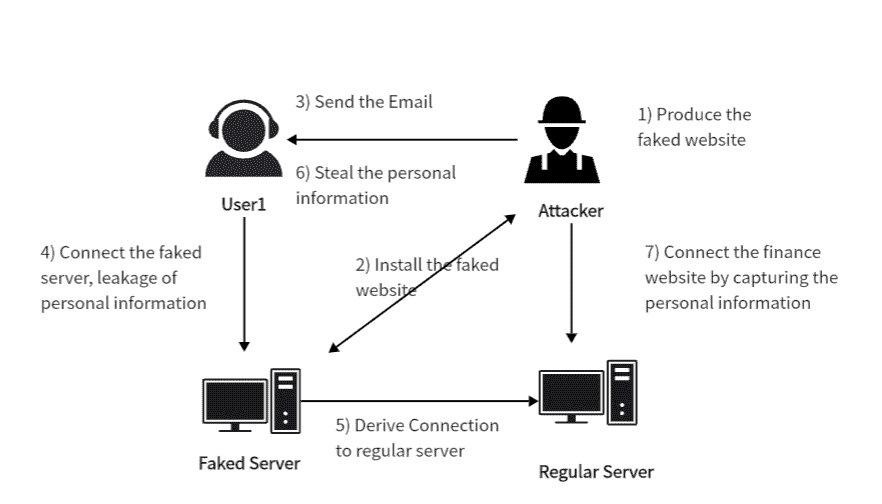
Spoofing text messages also includes phishing attempts. There are ways in which fake links will be sent. These links are attached to the mimicked website of the legitimate website. When users use their credentials to log in to the website, they steal them. The same replica of the legitimate website makes it harder for the customer to understand the scam.
3. Fraudulent Promotions
Fraudulent promotions send fake deals, discounts, or contest SMS spam messages to customers. Generally, they would ask customers to enter their credit card information so they could avail of the discount offer or participate in the content. These messages provide a sense of urgency that excites the customer into doing it.
4. Impersonation
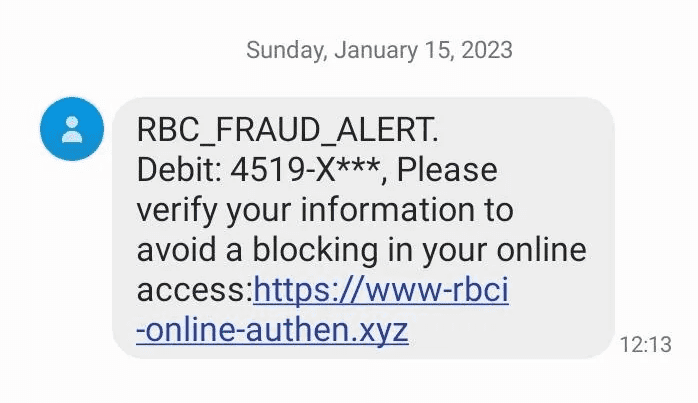
In this attack, attackers impersonate someone in authority to get data from the customer. For example, they can contact the customer stating that they are from a trusted organization and asking for personal data to resolve an issue they might be facing. They can also get money by charging a fee or asking to transfer funds.
5. Malware Links
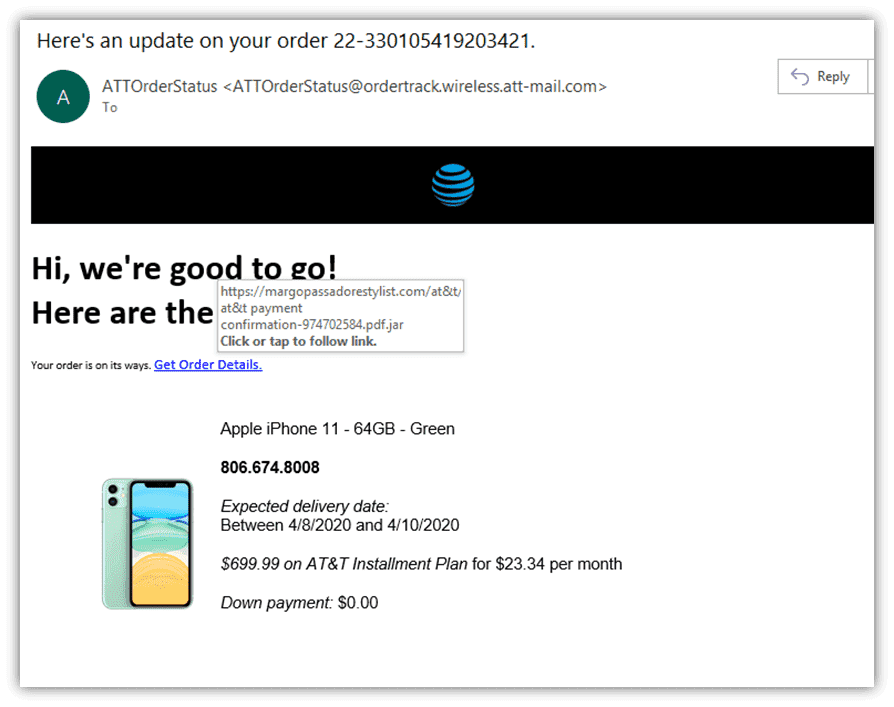
These SMS spam messages have malware links in them. So when customers click on the link, it takes them to a downloadable file or an app. Once this happens, their devices can get infected, and the attacker will be able to steal sensitive information.
6. Premium Rate Scams
Premium rate scams are tricks where people receive messages that ask them to call or text expensive phone numbers. If they do, they get charged a lot of money. These SMS spam messages often use convincing words to make people think they need to act quickly. They might say you won a prize or that you need to fix an urgent problem.
How to Prevent SMS Spoofing Attacks?
- Verify: Always check who sent the message before you reply. Simply verify text messages by ensuring its from a legitimate source. Look for anything strange in the sender's name or the message that might show it is fake.
- Avoid Clicking on Links: Be careful with messages you did not ask for that have links or attachments. If a message says it is from a trusted source, go to their official website directly instead of clicking the link in the message.
- Use Security Software: Install and regularly update anti-malware software on your devices. This helps find and stop viruses from bad links in fake messages.
- Report Suspicious Messages: Tell your mobile carrier and the authorities about any fake messages you get. This helps them stop more attacks and protect other people.
-
Step 1- Register and Log In
Create your EngageLab account in just a few minutes. Once registered, log in to access your console and begin setting up your SMS service.
Experience It Now
-
Step 2-Access the SMS Dashboard
From your console, click on SMS in the menu to enter the SMS management interface. -
Step 3-Set Up SMS Services
Within the SMS dashboard, you can configure essential sending options: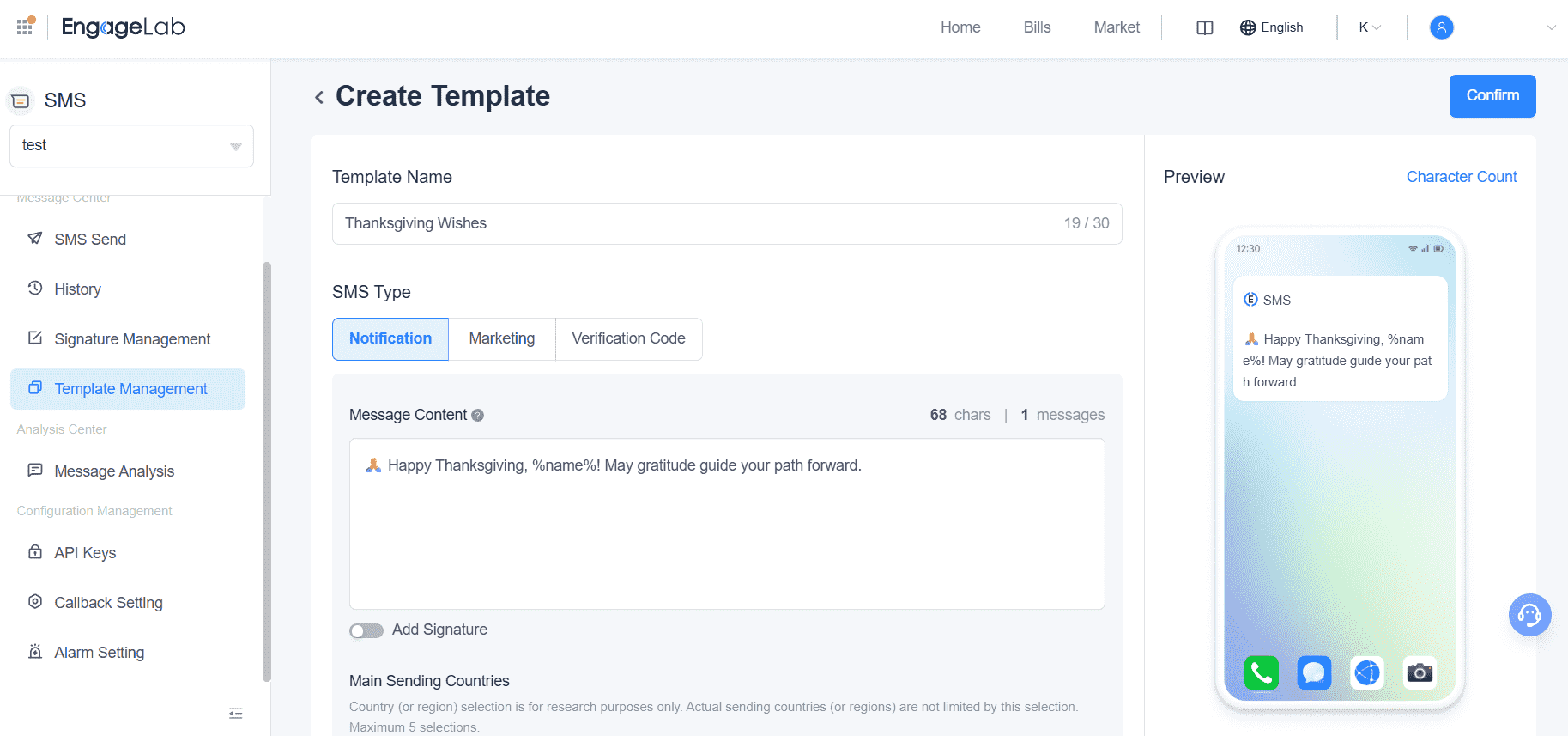
- Define your sender ID
- Create and submit message templates via Template Management
- Adjust delivery settings under SMS Send
-
Step 4-Enable Security Features
EngageLab provides built‑in security measures, including authentication and encryption. These features help protect your messages from spam and spoofing, ensuring only legitimate communications reach your customers. -
Step 5-Monitor Activity and Performance
Use the Analysis Center to track SMS delivery, engagement metrics, and campaign performance in real time. Monitor for unusual activity and maintain transparency with actionable insights. -
Step 6-Maintain Brand Trust and Security
Spoofed messages can damage customer trust. With EngageLab, you can secure your communication channels, verify sender authenticity, and protect customer data—reinforcing your brand’s reliability and commitment to security. - EngageLab keeps your messages safe with authentication, encryption, and monitoring for problems in real time.
- EngageLab verifies the sources of the incoming messages. It is quickly able to distinguish when an SMS spam or suspicious message is received.
- This process stops attackers from faking the sender ID and helps receivers trust the messages they get.
- EngageLab uses best-in-class encryption to protect messages while they are being sent. This means that even if someone intercepts the message, they cannot read it.

Spoofing text messages can be prevented by notifying businesses about anything suspicious you see. When they are notified and know about the types of attacks that are happening, they will be able to secure their SMS aggregator more.
Protect Your Brand Reputation with Reliable SMS
The first key to securing your business from spoof SMS is to use a secure platform. It must ensure that the communication between you and your customer is reliable and secure.
EngageLab is one such effective platform providing best-in-class security. It watches for fake messages and warns businesses right away if something seems wrong. This helps them act quickly to stop any problems.

Here is how you can easily configure SMS with EngageLab.
How to Configure SMS in EngageLab
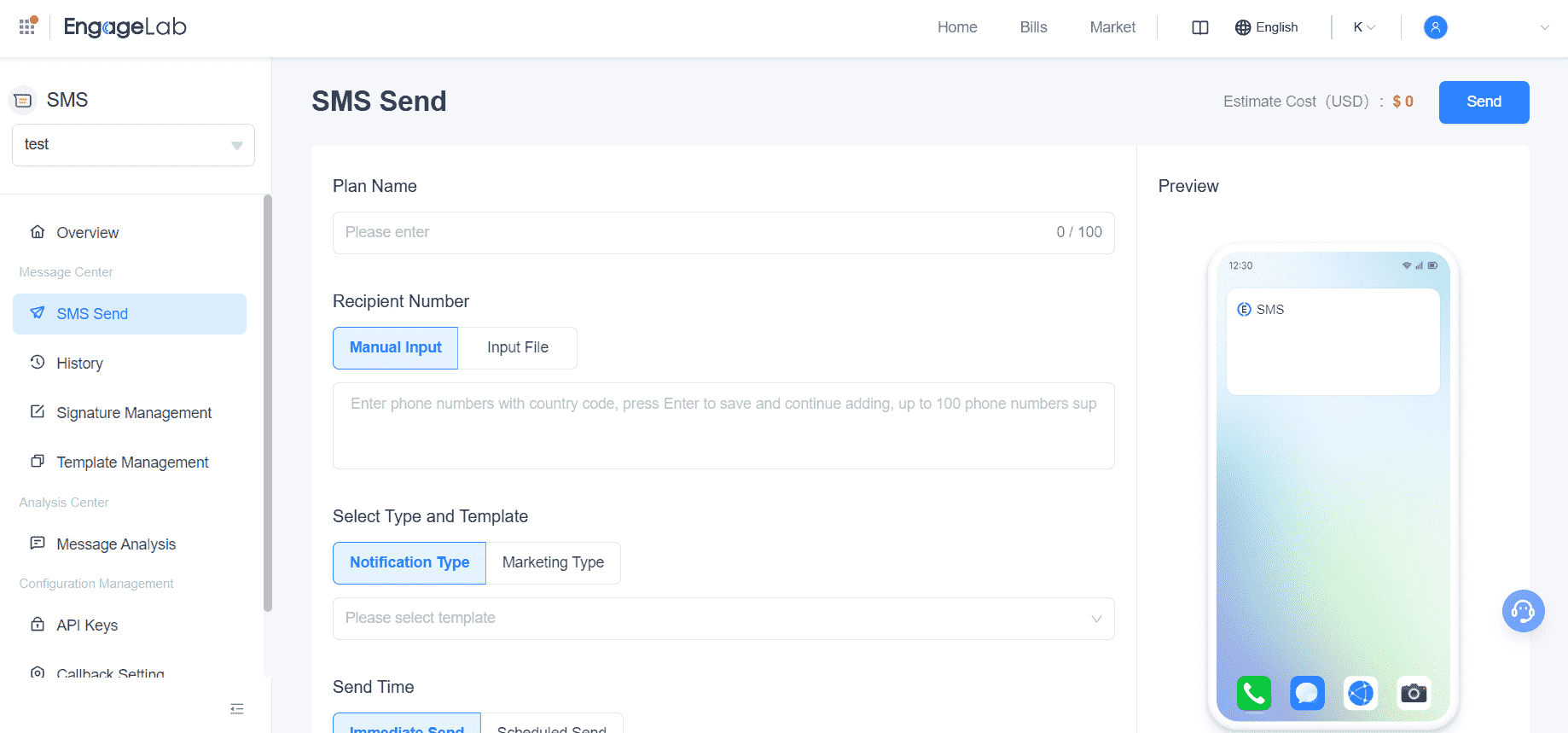
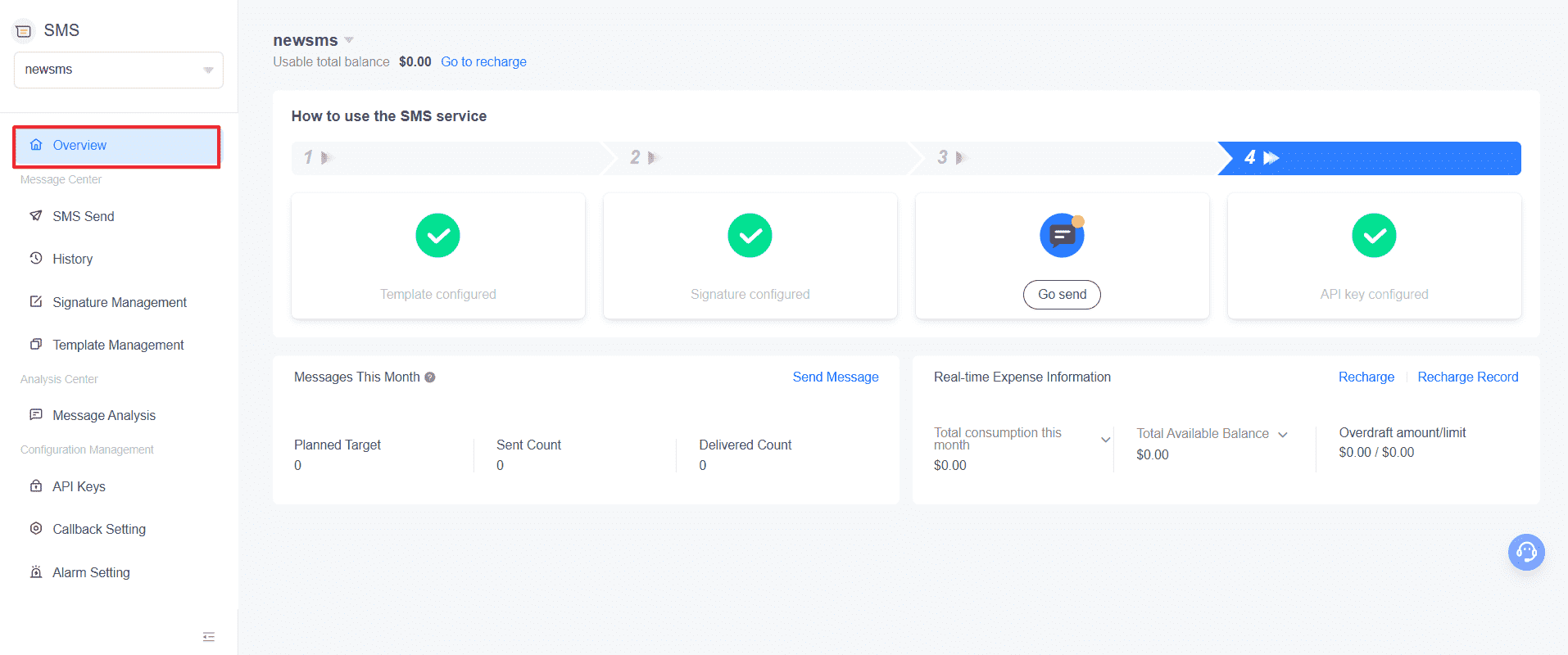
Engagelab--a Great Solution for Secure Communication
Sum up!
SMS spoofing is a big problem for businesses, but if you know how they work and use good preventive methods to stop them, then your business can stay safe. This also ensures that customers trust your messages.
Register with EngageLab for free now! It will help keep your brand's reputation safe by making sure your SMS messages are secure, dependable, and trusted by your customers.





